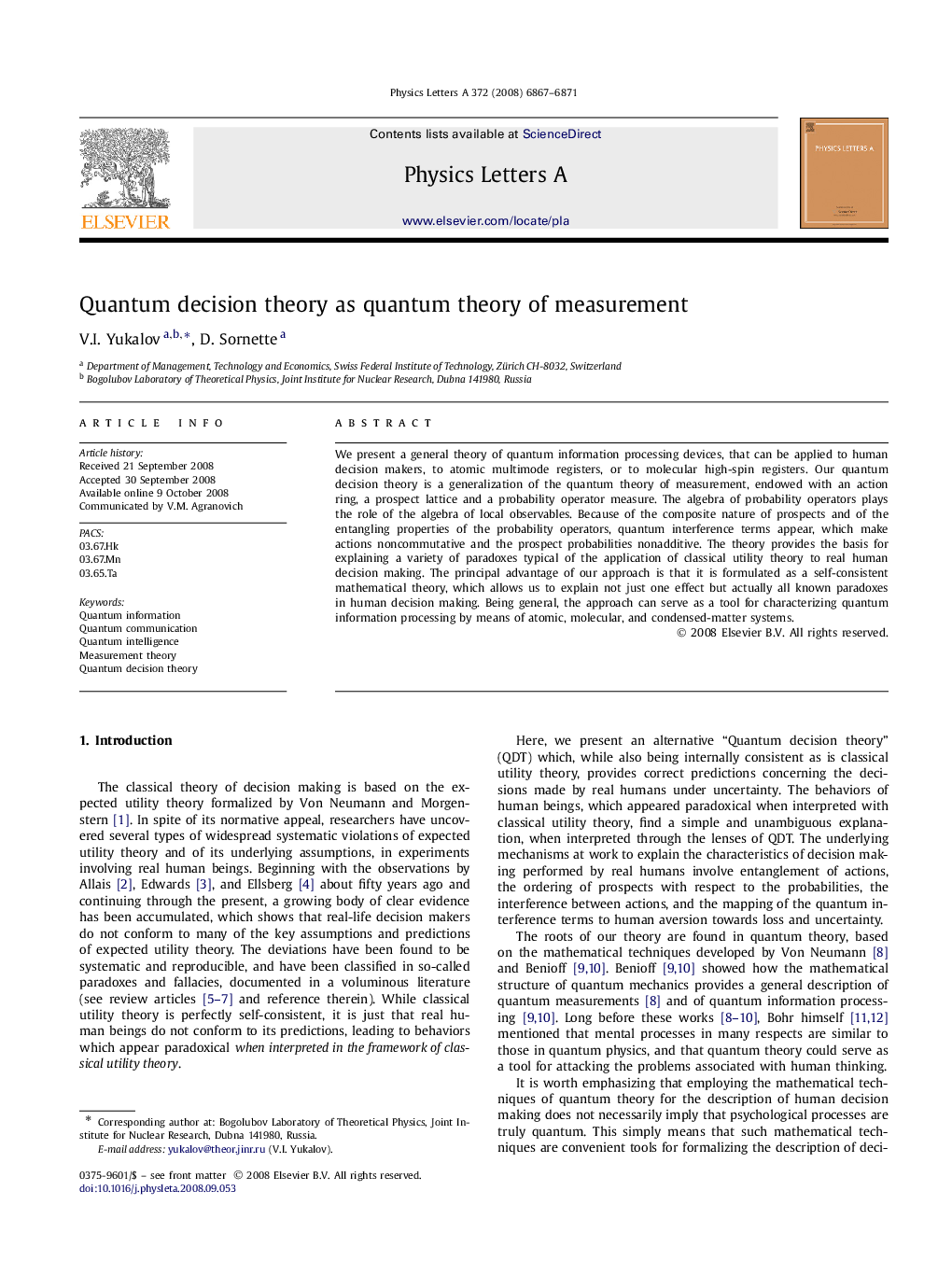| Article ID | Journal | Published Year | Pages | File Type |
|---|---|---|---|---|
| 1862406 | Physics Letters A | 2008 | 5 Pages |
We present a general theory of quantum information processing devices, that can be applied to human decision makers, to atomic multimode registers, or to molecular high-spin registers. Our quantum decision theory is a generalization of the quantum theory of measurement, endowed with an action ring, a prospect lattice and a probability operator measure. The algebra of probability operators plays the role of the algebra of local observables. Because of the composite nature of prospects and of the entangling properties of the probability operators, quantum interference terms appear, which make actions noncommutative and the prospect probabilities nonadditive. The theory provides the basis for explaining a variety of paradoxes typical of the application of classical utility theory to real human decision making. The principal advantage of our approach is that it is formulated as a self-consistent mathematical theory, which allows us to explain not just one effect but actually all known paradoxes in human decision making. Being general, the approach can serve as a tool for characterizing quantum information processing by means of atomic, molecular, and condensed-matter systems.
